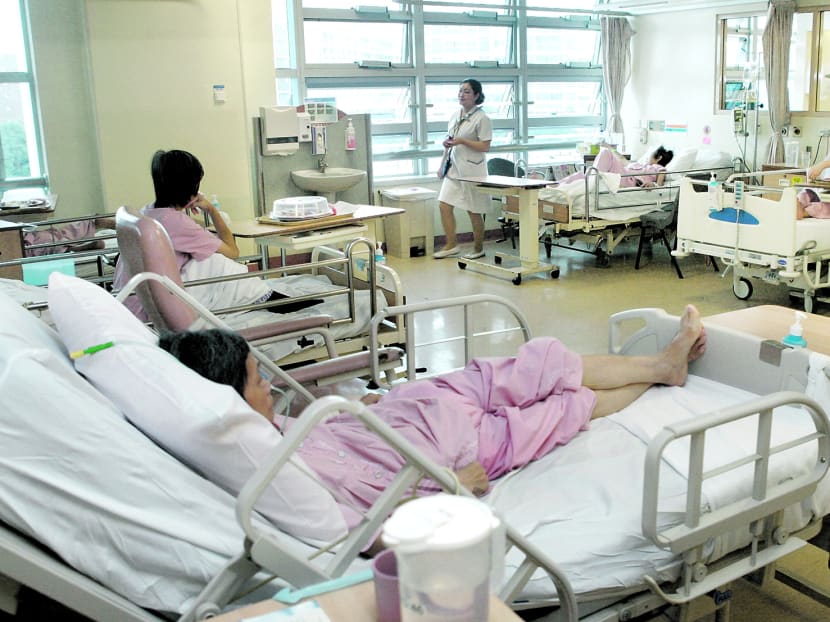Govt to take on larger share of medical costs
SINGAPORE — The Government’s ongoing review of the Republic’s healthcare financing system will, among other things, look at reducing Singaporeans’ share of out-of-pocket medical expenses — with the Government taking up a larger portion — and broadening insurance coverage by expanding risk-pooling.

The Government will also study how to expand the use of Medisave, which is primarily meant to support large hospitalisation bills. Today File Photo
SINGAPORE — The Government’s ongoing review of the Republic’s healthcare financing system will, among other things, look at reducing Singaporeans’ share of out-of-pocket medical expenses — with the Government taking up a larger portion — and broadening insurance coverage by expanding risk-pooling.
It will also study how to expand the usage of national financing schemes such as Medisave — which is primarily meant to support large hospitalisation bills — and Medifund, which covers expenses for nursing homes and other long-term care services.
The Government will also increase investments in health promotion and preventive care, Deputy Prime Minister Tharman Shanmugaratnam said yesterday.
“Our approach to healthcare financing has to evolve. As our society gets older, we will see higher demand for quality care, longer life expectancy and the rising incidence of chronic diseases,” he said. “Families will also get smaller over time and we will have more singles without family support when they are in their silver years.”
He added: “This is a major review. We are studying the strengths and weaknesses of other countries’ healthcare systems. We will have to consider the options carefully and consult broadly with Singaporeans. We want to do better for today’s generation of Singaporeans, and do it in a way that is fair and sustainable for the next generation.”
The Ministry of Health will elaborate on the review during the Committee of Supply debate.
Mr Tharman also announced that the Government will expand and top up the Senior’s Mobility and Enabling Fund by S$40 million — to hit S$50 million — to cover a much wider range of assistive devices like hearing aids, shower chairs and motorised wheelchairs.
Medifund will also be topped up by S$1 billion, bringing the total fund size to S$4 billion. The ElderCare Fund will also topped up by S$250 million this year.
Subsidies of up to 80 per cent will also be provided to lower-income elderly to defray the cost of consumables such as diapers, nasal tubing and catheters. For example, an elderly patient in need of milk feeds can save up to S$2,000 per year.
Professor Phua Kai Hong, an expert on healthcare policy and management at the Lee Kuan Yew School of Public Policy, felt that the most important area to be reviewed is health promotion. “Screening must be made as cheap as possible ... and we must send the signal by allowing the use of Medisave for preventive care,” he said.
Prof Phua also argued that Singaporeans are “over-saving” as far as Medisave is concerned. The savings level has reached the equivalent of about 10 years of the annual health budget, when between three to five years is sufficient, he said.
Prof Phua suggested higher payouts, of up to S$1,000 per month for ElderShield, for instance, up from the current S$400 per month. The resulting higher premiums can be paid from Medisave, he proposed.
“Allow the healthy to use (Medisave) ... not only when they are sick,” he said.
Experts welcomed the expanded Senior’s Mobility and Enabling Fund, which will cover expenses for not just basic devices. This will help the elderly to live more independently, the experts noted.
Still, Ms Lim Sia Hoe, General Manager of NTUC ElderCare, said that the fund should be made more accessible. “It has to be integrated into the care system so that it can be delivered seamlessly. If (the Government) is prepared to decentralise it, delegate the managing of the fund to the care providers, it would make a lot of difference in cutting down red tape and time,” she said.






